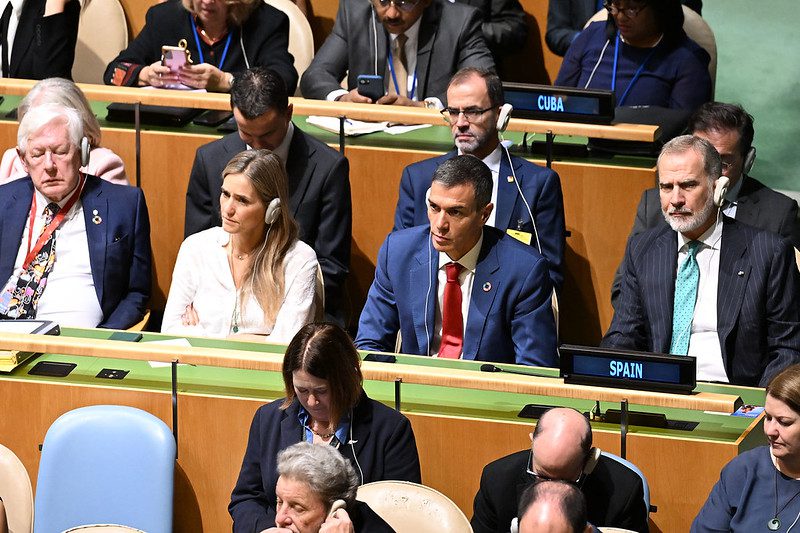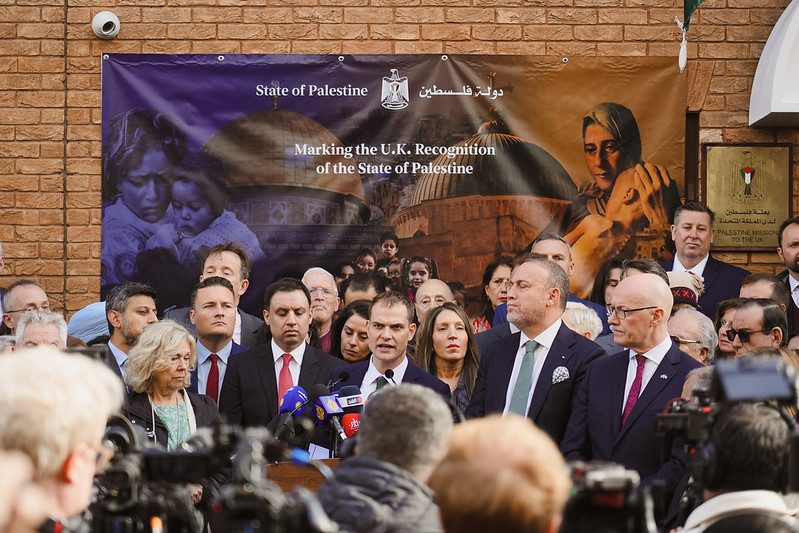2025 has emerged as a decisive year in the long struggle for Palestinian recognition, with a growing number of Western nations shifting their positions towards acknowledging Palestine as a state.
The turning point came in the aftermath of the Hamas-led attacks of 7 October 2023, among the deadliest in Israel’s history, which killed nearly 1,200 people and saw around 250 Israeli civilians and soldiers taken hostage. Some remain in captivity, while others have since been killed.
Israel’s military response has unleashed one of the bloodiest chapters of the conflict. According to the Hamas-run Gaza Health Ministry, more than 60,000 Palestinians have been killed since October 2023. Entire neighbourhoods lie in ruins, famine has been confirmed by international monitors, and humanitarian aid remains severely disrupted, leaving Gaza on the brink of uninhabitability. Israel, meanwhile, has endured continued rocket fire, instability, and attacks such as the September 2025 bus stop shooting in Jerusalem that killed six people.
Both sides now face international scrutiny. The International Court of Justice has issued arrest warrants for Israeli Prime Minister Benjamin Netanyahu and former Defence Minister Yoav Gallant, as well as Mohamed Diab Ibrahim al-Masri, Hamas’s top military commander, for alleged war crimes and crimes against humanity.
The devastation has re-energised global calls for a lasting settlement. France and Saudi Arabia recently co-hosted a two-state solution conference, producing the “New York Declaration,” which demanded an immediate ceasefire, the release of all hostages, and the disarmament of Hamas as initial steps towards establishing a Palestinian state. Since then, momentum has built among countries pledging to recognise Palestinian statehood, signalling a significant diplomatic shift.
Which countries have pivoted?
The current wave of recognition began in spring 2024, when Spain, Norway and Ireland recognised Palestine between May and June. Slovenia followed later that year through a parliamentary vote.

Image: Prime Minister Pedro Sanchez attends the opening of the United Nations General Assembly – La Moncloa /
Almost exactly a year later, with the conflict escalating, France and its European allies ramped up diplomatic pressure over Israel’s actions in Gaza. France and Saudi Arabia co-chaired the two-state solution conference in July 2025, after which the French Ministry of Foreign Affairs confirmed that France would recognise Palestine in September. President Emmanuel Macron framed the decision as part of a broader push for a “durable political horizon for peace,” tied to conditions including a ceasefire, the release of hostages, and reforms within Palestinian governance.
The conference triggered a new wave of pledges. Canada, Australia and the UK announced they would recognise Palestinian statehood once conditions were met, such as Palestinian commitments to democratic elections, improved governance and recognition of Israel’s right to exist, alongside Israeli commitments to halt settlement expansion, end hostilities in Gaza, and commit to a two-state solution.
Coordinated announcements came on the eve of the United Nations General Assembly high-level week in September, when Canada, Australia and the UK declared recognition of Palestine. Portugal joined them hours later.
In the days that followed, France formally recognised Palestinian statehood, joined overnight by Malta, Monaco, Andorra and Luxembourg.
Yet the response was not universal. Germany and Italy refused to take part. Chancellor Friedrich Merz argued that “recognition must be the final step in a peace process that results in a two-state solution.” Italian Prime Minister Giorgia Meloni stated that Italy would only recognise Palestine if Hamas released all hostages and was excluded from any future government.
Singapore also weighed in, saying it would recognise Palestine once it had an effective government that accepted Israel’s right to exist and renounced terrorism. While opposing Israel’s undermining of the two-state solution, Singapore announced sanctions on settler groups in the West Bank.
What will recognition achieve?
For many governments, recognition is tied directly to the urgent need for a ceasefire. More than 65,000 Palestinians have been killed since October 2023, according to Gaza health authorities, and a recent UN Commission of Inquiry report concluded that Israel was committing genocide.
Recognition aims to strengthen Palestine’s standing in international diplomacy and law. For instance, when Palestine attempted to accede to the Geneva Conventions in 1989, Switzerland rejected the application, citing “uncertainty” over the existence of a Palestinian state. Today, recognition by powerful states may help remove such obstacles and give Palestine greater leverage in negotiations.
The move also places new responsibilities on European and Western governments. Recognition not only compels them to support Palestinian statehood but also to balance this with their ties to Israel.

Image: Prime Minister of Israel Benjamin Netanyahu – Office of the Prime Minister of Israel / Ben Amos
For Netanyahu, the stakes could not be higher. He has repeatedly declared that “there will be no Palestinian state” and vowed to fight “against the slanderous propaganda aimed at us.” The Israeli leader has warned that recognition constitutes “an absurd prize for terrorism” and plans to coordinate his response in an upcoming meeting with Donald Trump.
A turning point, but not a settlement
Recognition does not in itself create a Palestinian state. The path remains blocked by Hamas’s continued presence in Gaza, the complexities of Palestinian governance, and the fact that any bid for full UN membership would require approval by the Security Council, where the United States holds a veto.
Yet 2025 marks a turning point. For the first time, Israel’s closest allies have coordinated recognition of Palestinian statehood, signalling that their patience is waning. While the immediate impact on the ground is limited, the diplomatic message is clear: countries are raising the pressure on Israel to accept a negotiated peace.
Featured Image via Ben Dance – FCDO

